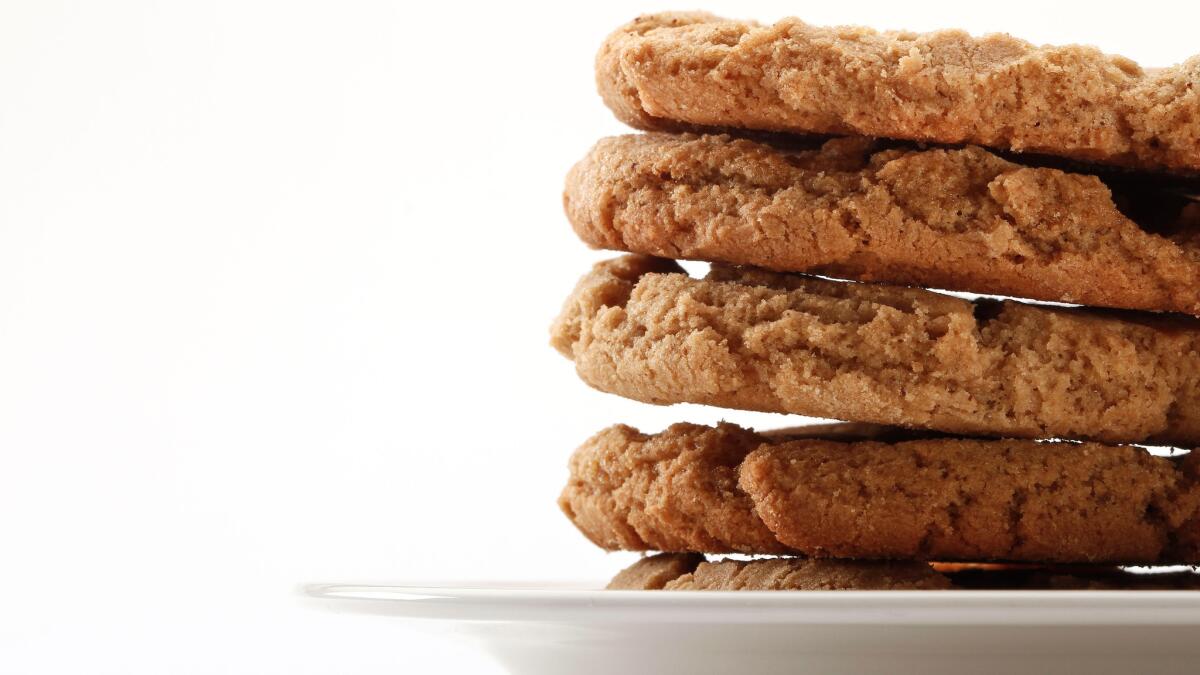Want to get off the diet merry-go-round? Maybe it’s time to try ‘mindful eating’

- Share via
We’re told again and again that “diets don’t work.”
So what are we supposed to do?
Many people are turning to mindfulness – noticing the here and now without judgment – in hopes of breaking bad eating habits.
“It’s about creating a new lasting relationship with your eating. It’s not deciding I’m going to change what I eat in some rigid way and then stay with that till I lose 30 pounds,” says Jean Kristeller, a professor emerita at Indiana State University and co-founder of the Center for Mindful Eating, who has for decades studied meditation-based treatments for eating disorders.
What’s so bad about losing 30 pounds on a rigid diet? Most people eventually regain at least that much when they give up the diet.
And for those who feel that their willpower fails over and over, mindful eating is not about willpower, says Kristeller, author of “The Joy of Half a Cookie,” one of several books on mindful eating.
Rather than being about turning away from something we want (that bag of potato chips, for instance), mindful eating asks us to be aware of what we want and feel, and make a choice.
It takes practice – not only to notice our food but to realize what aspects of our eating are tied up in emotions, habits, memories and family history. And then it takes practice to move from awareness to action.
In mindful eating classes, students often are asked to take a single raisin and study it – color, shape and smell – and then eat it with the same attention to detail.
In a time when we eat in our cars, standing at the fridge and at the computer, developing an awareness of and enjoyment for nutritious food may not be easy. But people are likely to learn, Kristeller says, that while the first few bites of the sundae are glorious, the whole bowl often isn’t satisfying.
See the most-read in Life & Style this hour »
Her evidence comes from years of work with people as much as 100 pounds or more over their ideal weight.
Experts at Duke Integrative Medicine also are using mindfulness with patients to learn to treat their bodies as “worthy of care,” Ruth Wolever and Beth Reardon write in their book about the program, “The Mindful Diet.”
Calories become information, not absolute rulers. Wolever and Reardon write that eating in response to emotions can be OK; the problem is when it becomes chronic.
One recent Sunday, a dozen people gathered in a Santa Monica kitchen for a mindful cooking class.
“Most people get to mindfulness because they are struggling. We wanted to create something that is allowing people to enter into it from more creative modalities,” says Elisha Goldstein, who with his wife founded the Center for Mindful Living in Los Angeles.
At the start of class, the group sat in a circle for a short meditation. In the kitchen, the teacher, Meredith Klein, focused on selecting ingredients, knife skills and slowing down to pay attention to the process of making two soups. She asked the students to work in silence.
“When you are part of the cooking process, you are naturally giving yourself a boost toward mindful eating,” Goldstein says. “You are aware of all of the fullness of this meal in front of you.”
That is the sort of positive experience that our brain needs more of to foster resilience, says Goldstein, author of the mindfulness book “Uncovering Happiness.”
3 unexpected benefits to eating mindfully
1. A tendency to eat more slowly. And that in turn can provide an awareness of when you’re full – something that’s often missing when you eat quickly.
2. Increased enjoyment of food. “If you eat mindlessly … you’re not cultivating your inner gourmet,” says Kristeller.
3. Spillover to other parts of life. Becoming aware of what makes you eat a doughnut or six might also help you stop snapping at a spouse.
ALSO
6 nutritional rules that everyone can agree upon
5 reasons why you need to get in shape now — before it’s too late











